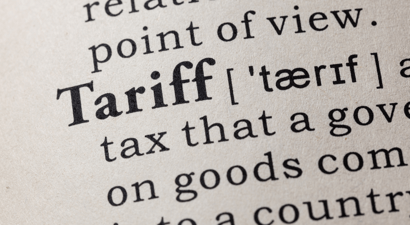Importers beware – SARS proposed amendment to rebate items may expose you to significant duties which may be uninsured.
Goods, transported on a vessel, are deemed, in terms of the Customs and Excise Act, 91 of 1964 (“the Customs Act”) to be imported when the carrying vessel enters a South African port. It is at this time that the importer incurs liability to pay duty. Payment of duty may however be deferred where goods are entered “in bond”, for instance where they are entered into a licensed customs warehouse, container depot or are cleared in transit for removal from the Republic.
There have been a number of robberies from customs warehouses as well as hijacking and theft of goods in transit whilst still “in bond”. In these circumstances importers have been able to avail themselves of the provisions of rebate item 412.09 in terms of which goods qualify for a rebate where they have been lost, damaged or destroyed by, inter alia, vis major. A rebate is sought prior to duties being due as compared to a refund of duties paid, which is the subject of other provisions of the Customs Act.
On 29 August SARS advised that it was seeking to amend various rebates to exclude from the ambit thereof loss or damage to goods occasioned by robbery or theft. This appears to be in response to a judgment handed down by the Supreme Court of Appeal (“SCA”) in the matter of The Commissioner for the South African Revenue Service v JM da Encarnacao N.O. and another. This matter concerned the loss of a consignment of cigarettes from a customs warehouse as a result of an armed robbery. The SCA held that the armed robbery constituted vis major and furthermore, as it could not, on the facts, be stated that the goods were entered for consumption, the importer was entitled to a rebate of duty.
If SARS’ proposed amendment carries, then importers whose goods are lost or damaged due to robbery or theft will remain liable to pay duty – effectively the theft of the goods will be deemed to be entry for home consumption.
SARS’ rationale is that the losses ought to be covered under a policy of insurance in favour of the importer, and so no actual loss will be incurred by the importer as a result.
Importers will have to be vigilant to ensure that they have insurance which includes cover for duty paid, or more importantly, payable. The VAT can be claimed back provided the person held liable for payment is a VAT vendor.
An importer (as a buyer) who relies on insurance procured by the seller, by way of example pursuant to a sale on CIF terms, may find that the insurance does not cover perils subsequent to the cargo being discharged (the mandatory cover required by INCOTERMS only requires coverage to the named port of destination). Even if cover was to be extended to cover transit to the importer’s premises or nominated warehouse, the quantum of cover does not usually include duties – calculated instead on the basis of the contract price + 10% (i.e. CIF +10%).
Certain insurance policies cover duty under an “increased value” provision. Notably such policies may contain qualifications to the effect that claims are excluded where there was a loss (in whole or in part) of the goods prior to duty becoming payable. On a construction of this provision and the Customs Act it may be that the policy will not respond where loss or damage occurred while the goods were still in bond or under Customs control. In fact, this wording is probably deliberate given that the rebate in question cannot, according to SARS’ interpretation thereof, be relied upon where such loss was insured.
Duties payable can be significant, particularly in respect of luxury goods that tend to be high risk, such as alcohol and tobacco products, as well as certain electronic goods.
Importers would be well advised to ensure that they have insurance in place which will respond to a claim for duties payable in circumstances where a rebate on duty is no longer possible subsequent to SARS’ amendments to the relevant rebate items (assuming that the Schedules are amended as proposed by SARS). Where one is dealing with the peculiarities of the Customs Act it may be best to procure insurance from a local underwriter familiar with the ‘legislative landscape’. Enforcement of a South African policy, if necessary, may also be far simpler and less costly. We are happy to advise if required.

 EXERCISE IN RICHARDS BAY)



